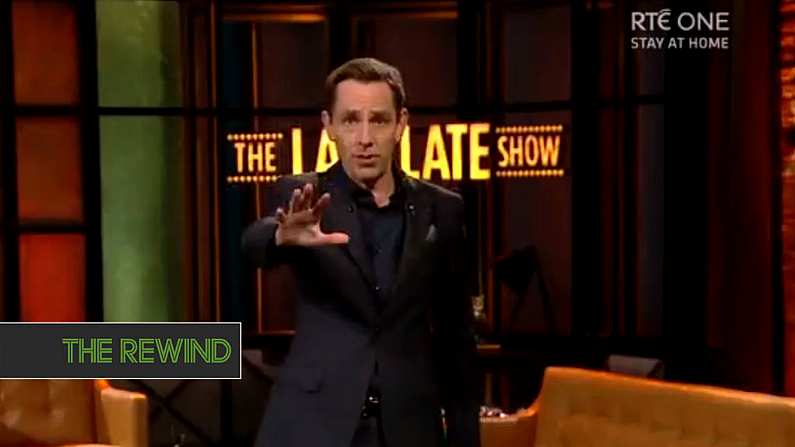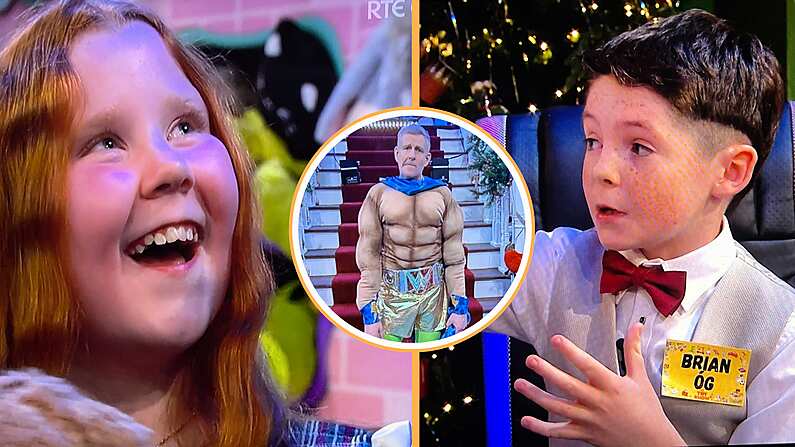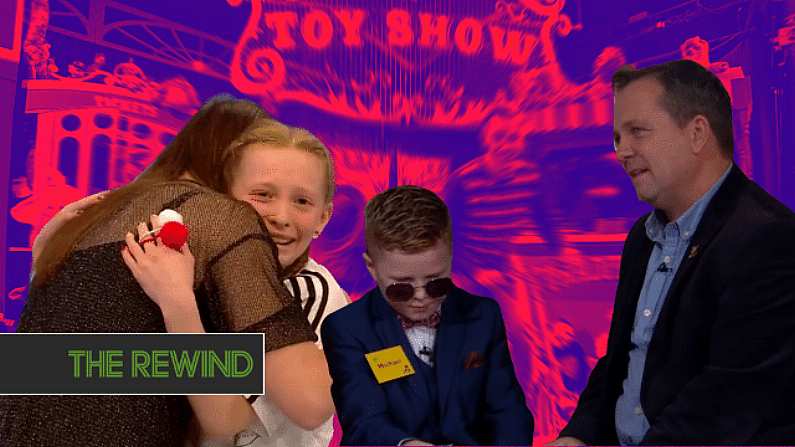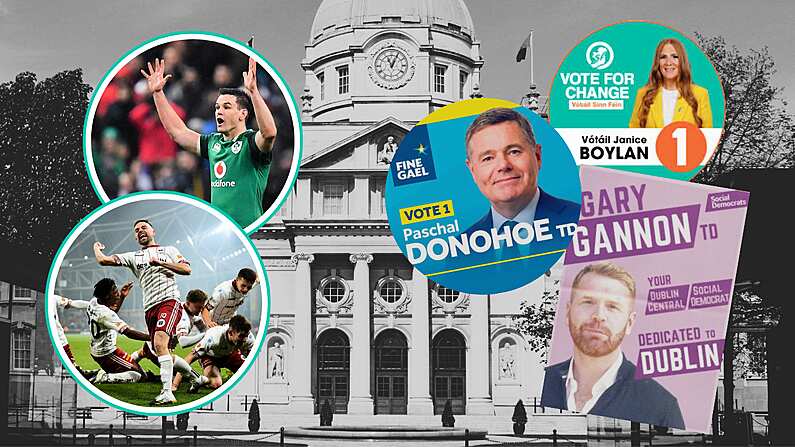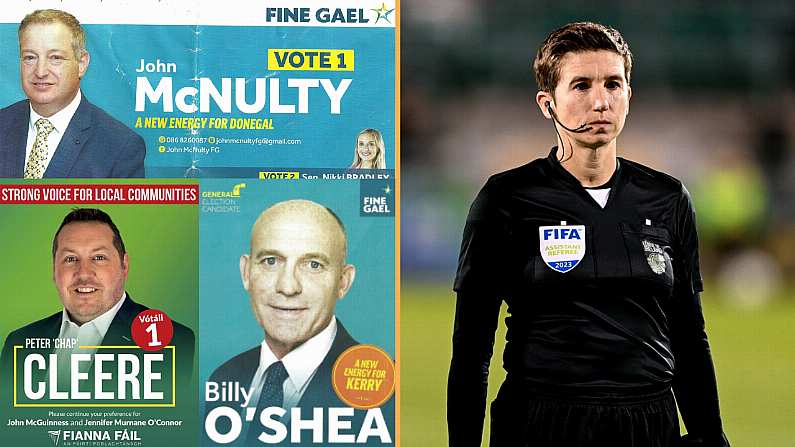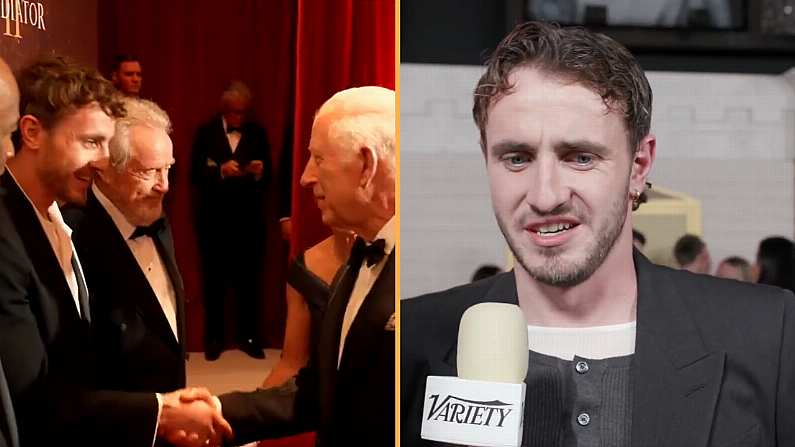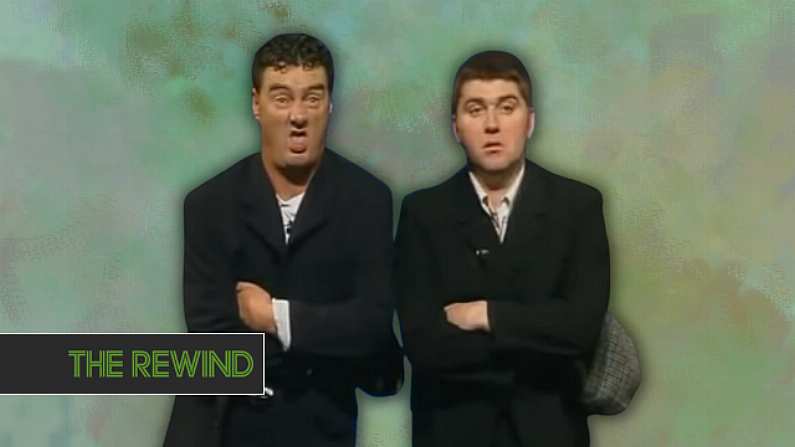Traditionally, The Late Late Show's social impact in Ireland was vital. It opened doors that had been locked for generations. With Gay Byrne at the helm, it was the platform for discussions on homosexuality, on abuse, on safe sex, on secularism, all of which very gradually dragged Ireland out of the stone age. When Gay left, so did that platform.
Nowadays, mocking The Late Late Show has become as much a part of Irish culture as the show itself. Since Twitter has come on the scene, the second screen slagging of Tubs and the gang has made it a whole new experience entirely.
"RTE canteen", "license fee" and "cringe" are three whinging terms you're likely to see pop up on your feed on any given Friday night. RTE have earned some of this criticism for sure. Naturally, a lot of it is also echo chamber moaning. You're unlikely to lose followers having a go at Ryan Tubridy, whether you believe you what you're saying or not.
In recent weeks though, it seems as though the tide has turned for The Late Late Show. In the country's hour of need, another expression has been the fore about the show that we haven't seen enough of for the last 20 years - public service!
On last night's show, Tubridy joked to Paul O'Connell that they were considered an essential service in terms of breaking the lockdown measures. He needn't have joked. Since the very start of this crisis, an essential service to the country is exactly what they've been.
O'Connell was on the show last night to talk about Barnardos, the children's charity. He spoke passionately about his involvement and what he has seen. It's a platform the charity badly needs given that traditional fundraising is in the toilet right when their services are needed the most. Just a few minutes before, Danny O'Reilly of The Coronas was on the show to promote Barretstown.
On previous shows, we've heard about the Irish Hospice Foundation from Brendan Gleeson, Childline from Hozier and lots more besides. These haven't been the usual ambassador interviews. Times feel too dire for a brief mention of your charity followed by twenty minutes about yourself. No, these people have made real appeals for what they are promoting and were given time to do so.
Part of this is getting out stories that will get missed during a large international emergency, such as their brilliant interview with Jessica Bowes on the increase in domestic abuse during the pandemic.
Domestic Abuse survivor Jessica Bowes (@i_am_jessica_b) shares an important message on the impact this pandemic is having on victims of domestic violence & how to help if somebody needs you to reach out. @Womens_Aid Helpline: 1800 341 900 https://t.co/56WgHOf4xc #LateLate pic.twitter.com/OgVw2AZEZ6
— The Late Late Show (@RTELateLateShow) April 10, 2020
Another part of telling these stories has been the weekly performances from Ireland's best artists, capturing the mood of the nation, letting a tear flow in the midst of the stories of death and loss.
A beautiful version of The Parting Glass from @Hozier with a dedication to all the people who have lost their lives to this virus, including the health worker who died today.#LateLate #StayAtHome pic.twitter.com/RdQRPML64Y
— The Late Late Show (@RTELateLateShow) March 27, 2020
"For the 288 Irish men and women who are no longer with us, and may they rest in peace".@GlenHansard & Colm Mac Con Iomaire – Falling Slowly.#ShineYourLight #LateLate pic.twitter.com/uRdkhEHN8e
— The Late Late Show (@RTELateLateShow) April 10, 2020
Most of all though, in this time of crisis, The Late Late Show has kept us informed. They've done it in exactly the way a talk show should. It's not the news, it's not what you see every day. It's a chance to reflect.
In the early weeks of the crisis, the demonstration of how Covid-19 testing works was a vital service for a frightened population. Ireland's Chief Medical Officer Dr. Tony Holohan appeared last night yet again to just talk through exactly where we are. The information is coming in a relaxed environment, not a news press conference that feels very distant to your reality. We need this as a country.
And we need to make sure we don't forget the individual human suffering that is out there. To those who have lost loved ones, they are not a number at a press briefing or a direction on a curve. The platform given last night to the most beautiful of poems illustrated that this hasn't been forgotten.
My Sister is Not a Statistic by Dorothy Duffy.
A tribute to her sister Rose 'Billy' Mitchell who lost her life to Covid19.#LateLate pic.twitter.com/Gn8AEJA1od— The Late Late Show (@RTELateLateShow) April 17, 2020
And there's Ryan Tubridy himself. The much maligned Ryan Tubridy. His diagnosis for Covid-19 gave a face to the pandemic and seemed to give people a real fright. His return has also seemingly given him a new mandate to speak to the nation. He has poignant, he has been serious, and in reality, he has been very important in the last number of weeks. The lack of a studio audience has helped him. He now speaking to us at home, and it feels like it. He is no longer the glitzy American style late night host trying to rile up a crowd. He's a serious broadcaster who has come of age when needed most.
“I want to thank them publicly from the bottom of my heart because they're a remarkable group of people.”
After being away from our screens for the past two weeks, Ryan opened the #LateLate thanking our frontline staff for their service. pic.twitter.com/Ei4lpMuUaS— The Late Late Show (@RTELateLateShow) April 10, 2020
"In years to come when you're asked that question, What did you do during Coronavirus? You can say you stood up, stayed home & you did it for Ireland"#LateLate pic.twitter.com/NxUYk3hGSp
— The Late Late Show (@RTELateLateShow) April 17, 2020
For the first time in many years, The Late Late Show truly is can't miss television. In the heyday of Gay Byrne, the nation was watching. We came together on a Friday night for a collective experience. More and more, that has gone from society. There are more options than we know what to do with. In response, the Late Late Show became less vital in content and relevance. Celebrities and lightness became the way the show looked for relevance in the modern world. Gradually, it was failing.
Now society is in need of a collective experience, and we're in need of informative, poignant television. And The Late Late Show has answered the call. It's providing a vital weekly focal point as we fight to come out the other side of this crisis. And for that we can be grateful.
SEE ALSO: Westminster Bridge Thronged With Clappers Ignoring Social Distancing Guidelines

